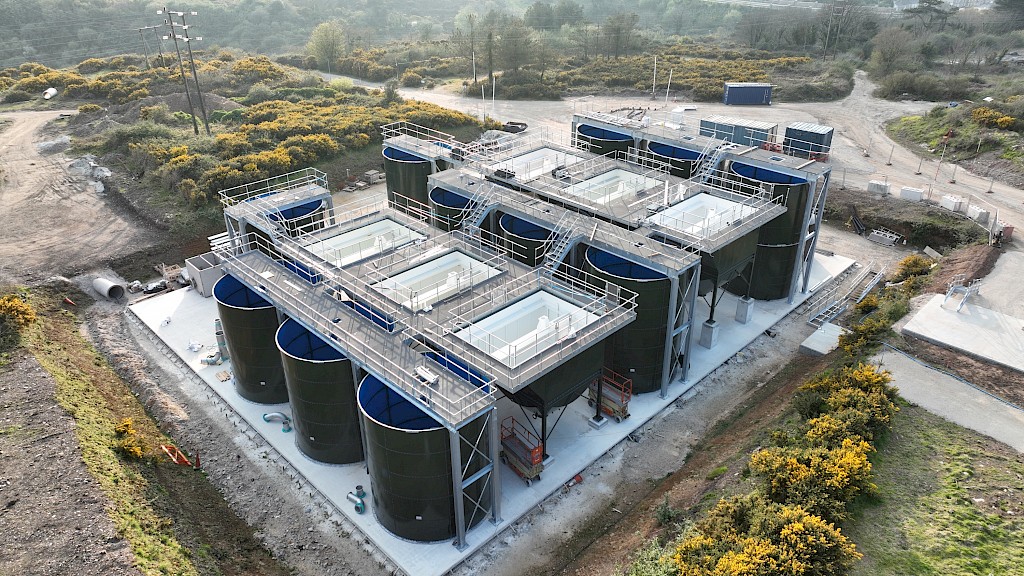Cornish Metals has commenced wet commissioning of a new mine water treatment plant (MWTP) at its South Crofty tin project in Cornwall, United Kingdom.
The MWTP is designed to treat 25,000 m3/day of water pumped directly from the mine, and will use high-density sludge (HDS) process technology to treat raw mine water and meet the company’s permitted standards for discharge into the nearby Red River.
Cornish said its project delivery team is being supported by the plant designer, equipment suppliers and contractors to fully test and commission every aspect of the process before commencing discharge to the Red River. The commissioning and building of the high-density sludge bed is expected to take up to three weeks, with full dewatering of the mine anticipated to commence in October.
The plant commissioning process should take several stages, including filling all reaction tanks with water to check for leaks, and electrically testing each of the motor and control circuits, commissioning the reagent addition modules and receipt of the first fills of all reagents.
Additionally, crews will start running the plant and treating the water to allow a bed of thickened (high-density) sludge to build up within the plant.
“This sludge building step is an essential part of the HDS process and is required to achieve the permitted water quality standards for discharge. During the sludge building process, the raw water from the mine is treated through the plant and then re-circulated back into the mine. Not until the plant is fully operational and performing to the required standards will any treated water be discharged to the Red River,” the company said.
CEO and director Richard Williams said the wet commissioning milestone is an exciting step for the company toward the dewatering of South Crofty mine.
“Our project team…has worked extremely hard over the last 12 months to take the MWTP from a conceptual flowsheet design through to a fully constructed plant,” he added.
The former producing South Crofty tin mine is located beneath the towns of Pool and Camborne, and closed in 1998 following over 400 years of continuous production.
Source: Cornish Metals

